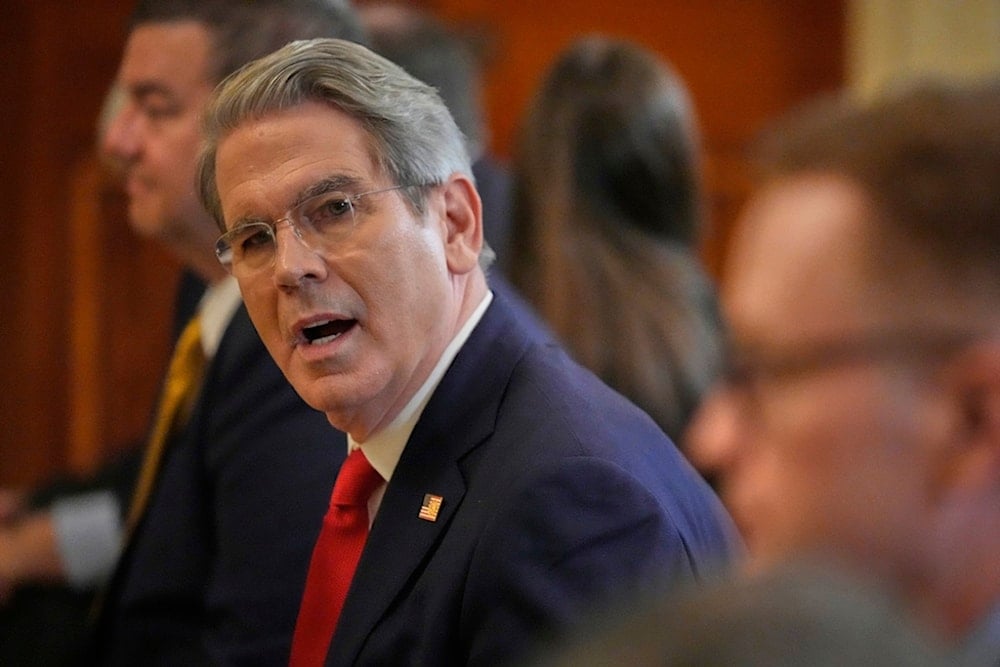US Treasury says US-China tariff truce 'working pretty well'
US and China have extended their tariff truce until November, with Treasury Secretary Scott Bessent calling the status quo "working pretty well."
-

US Treasury Secretary Scott Bessent arrives before President Donald Trump speaks at an event to promote his proposal to improve Americans' access to their medical records in the East Room of the White House, Wednesday, July 30, 2025, in Washington. (AP Photo/Mark Schiefelbein)
Speaking during an interview on Fox News' The Ingraham Angle, US Treasury Secretary Scott Bessent expressed confidence on Wednesday in the current trade arrangement with Beijing, noting that both sides had agreed to prolong their tariff ceasefire.
"China is right now the biggest revenue line in the tariff income," Bessent said. "We have had very good talks with China, I imagine we will be seeing them again before November," he continued, adding, "I think right now the status quo is working pretty well."
Washington and Beijing last week extended their tariff truce for another 90 days, postponing the imposition of sweeping triple-digit duties on each other's goods. The pause, first introduced in May following negotiations in Geneva, was reaffirmed after further talks in Sweden in July. US negotiators returned to Washington, recommending that President Donald Trump grant an extension, which pushed the deadline to November.
Tariffs, War, Diplomacy
Trade discussions are also unfolding against the backdrop of efforts to end the war in Ukraine. The US has pressed China to scale back purchases of Russian oil as part of its strategy to pressure Moscow, though Trump said on Friday that no retaliatory tariffs on China were imminent given the ongoing talks.
Meanwhile, Trump has escalated diplomatic outreach. He met Russian President Vladimir Putin in Alaska last Friday, then hosted Ukrainian President Volodymyr Zelensky, along with NATO and European leaders at the White House on Monday. Trump said Zelensky and Putin are expected to meet bilaterally before a three-way summit that he will also attend.
Asked about reports naming Budapest as a possible location for the trilateral meeting, Bessent responded that it "could be" the case, while stressing that the bilateral session must take place first.
Leverage in Trade Talks
While Bessent stressed the tariff revenue the US is drawing from Chinese imports, analysts warn that Beijing retains significant leverage of its own. China's control over rare earth minerals, vital for advanced manufacturing and defense, provides a powerful bargaining chip.
Moreover, China remains the dominant global supplier of key technology goods, including batteries, smartphones, and laptops, many of which US companies cannot easily source elsewhere. Despite Washington's tariffs, China's economy has weathered the pressure more robustly than expected, aided by its efforts to diversify markets and reduce reliance on the US.
By contrast, the US has been able to capitalize on tariff income and use the truce structure to maintain diplomatic pressure. However, experts suggest that China's broader strategic tools, from rare earth dominance to financial leverage through its holdings of US debt, give Beijing a longer-term advantage in these talks.

 3 Min Read
3 Min Read








